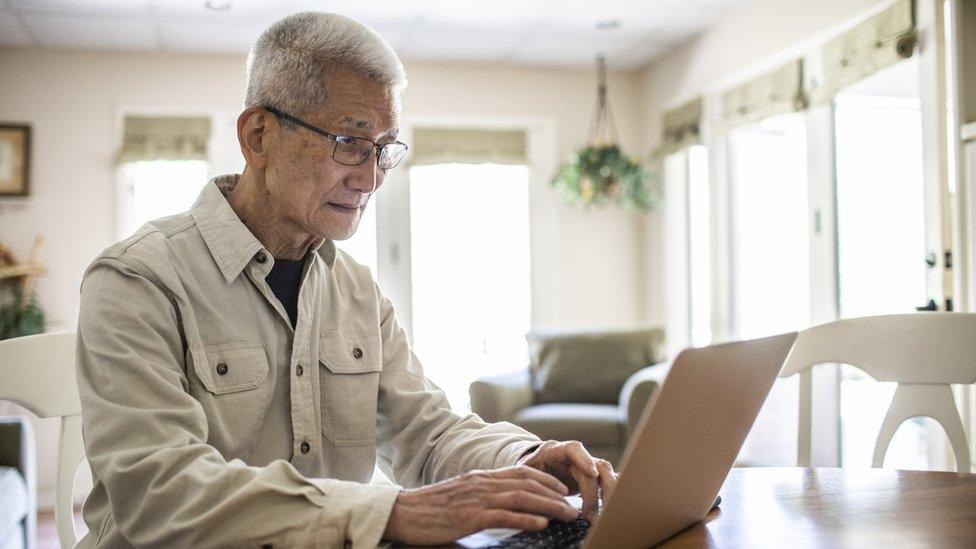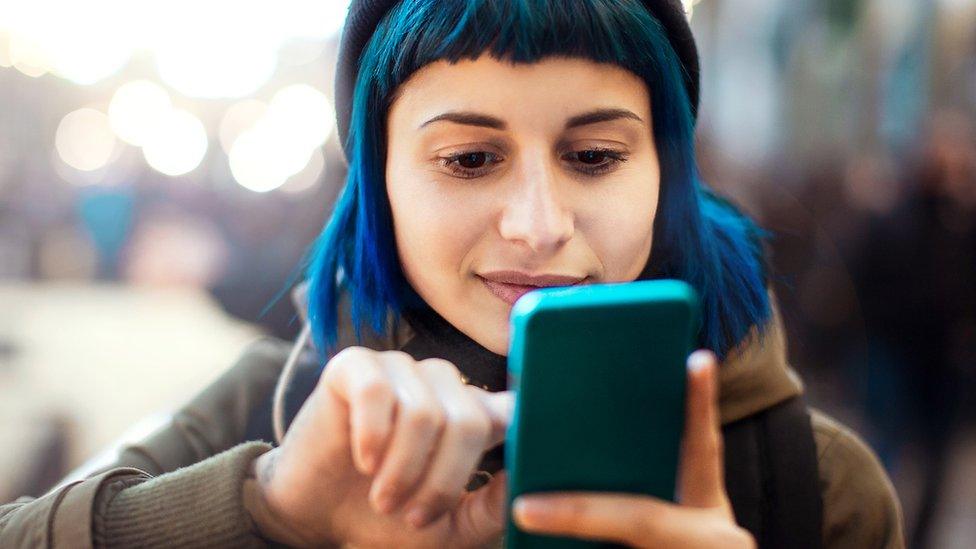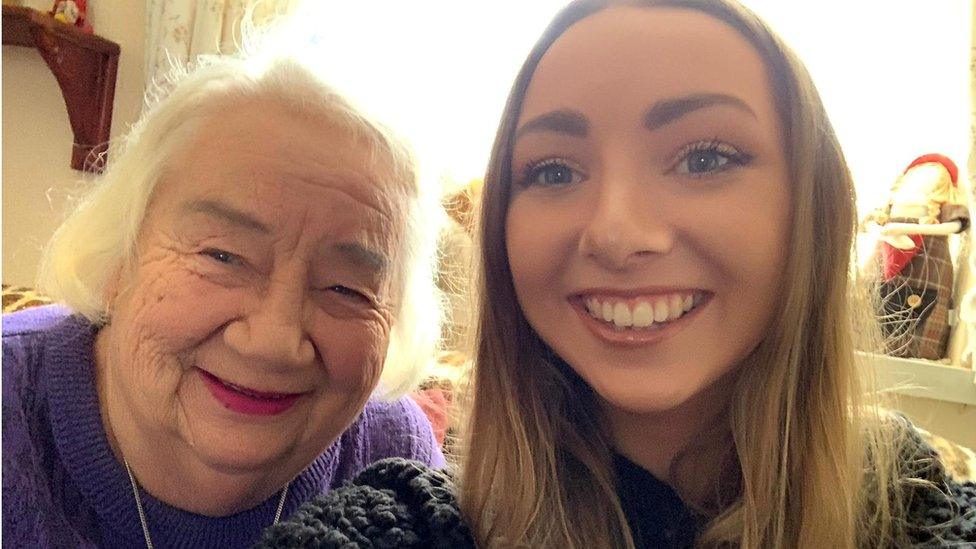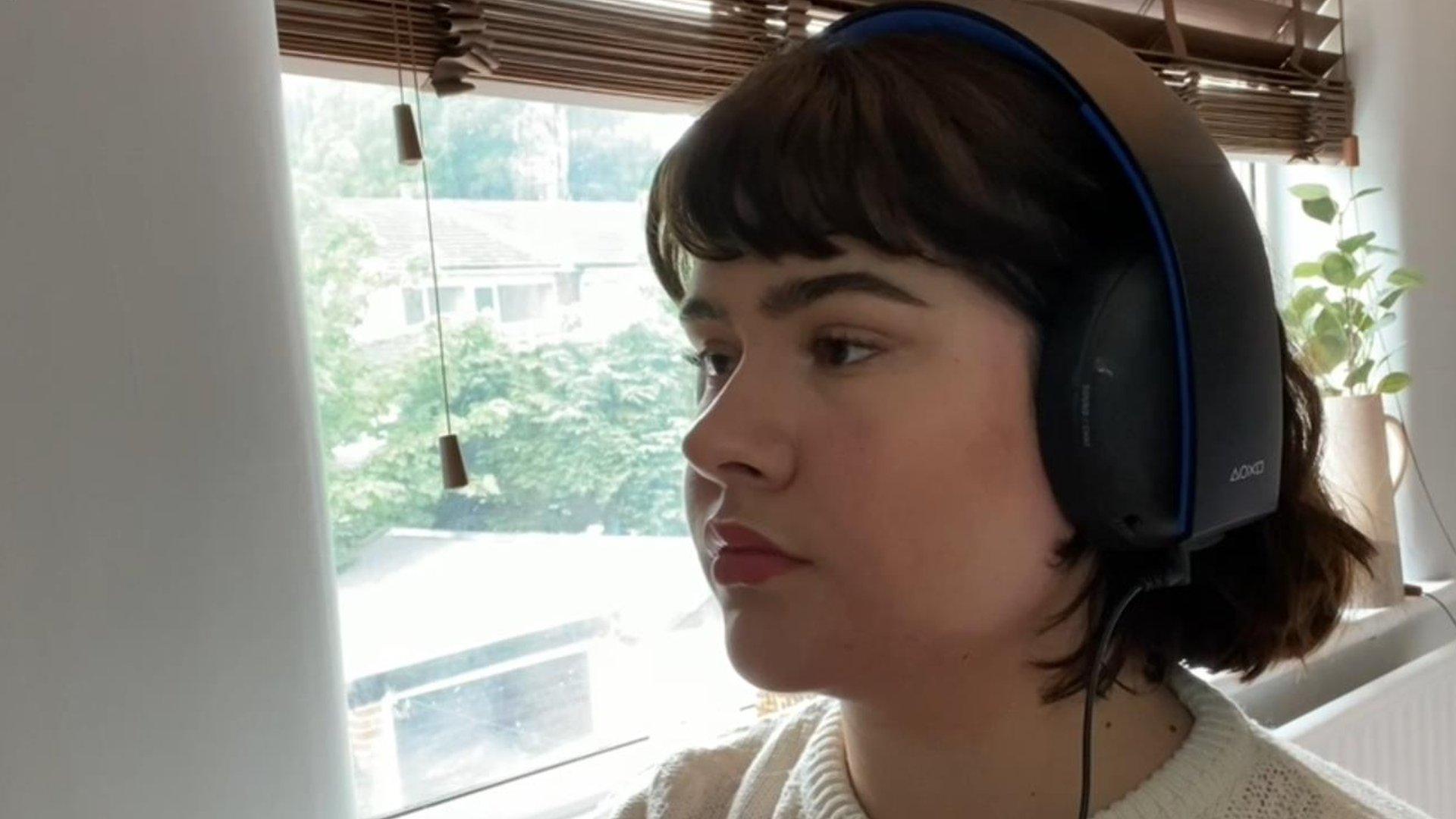Over-60s with only virtual contact 'more lonely'
- Published

Over-60s who relied on only telephone and online contact felt more lonely during the pandemic, a study suggests.
"Virtual contact on its own is not beneficial to older adults' mental health," researcher Dr Yang Hu of Lancaster University told the BBC.
However, when used to supplement face-to-face contact, it was associated with "enhanced mental wellbeing".
But researchers stress their findings reveal an association, not causation - and more research is needed.
The study, published in the journal Frontiers in Sociology, external, was conducted by Dr Yang Hu and Dr Yue Qian, at the University of British Columbia in Canada.
The researchers used data collected from 5,148 older people aged 60 or over in the UK and 1,391 in the US, surveyed both before and during the pandemic.
"In both countries, the increase in loneliness following the outbreak of the pandemic was greater for older adults who reported more virtual contact", they wrote.
However, the researchers noted that the findings only showed that virtual contact was associated with loneliness - not that it was necessarily the cause.
"It is possible that people who felt more isolated and lonelier tended to make virtual contact more frequently" they wrote.
But Dr Hu told the BBC: "The results are quite robust and cut across very different contexts in the UK and the US."
Online stress
During the pandemic, many older people turned to digital technologies to keep in touch with friends and relatives.
But a charity for older people warned doing so in some cases could have mixed results.
"We know the virtual environment can exacerbate those feelings of not actually being there with loved ones in person," Caroline Abrahams, charity director at Age UK, told the Guardian, external,
Researchers also pointed to the anxiety some older people experience with digital technologies.
One lesson may be to "protect those who have to rely on digital means of contact from potential stress and burnout" Dr Hu told the BBC.
Zoom calls and other forms of digital contact are important for more than just mental health. Health professionals can assess patients virtually, and food deliveries can be organised, for example.
Dr Hu felt there was a need to increase digital "preparedness among the ageing population for future crises like the COVID-19 pandemic and more generally for thinking about digitisation and ageing in the future".
He added the research suggested that it may be better to think of virtual contact as a supplement to face-to-face contact, rather than a replacement for it.
Related topics
- Published20 July 2021

- Published18 November 2020

- Published17 May 2020
